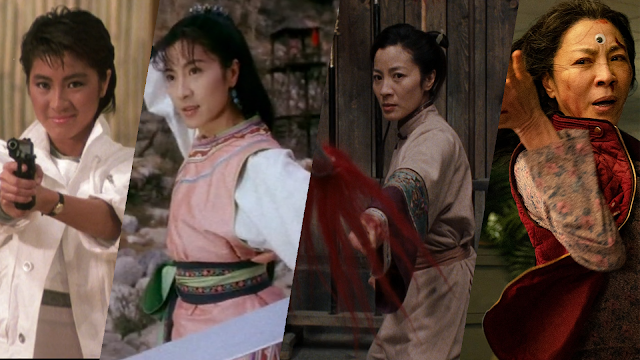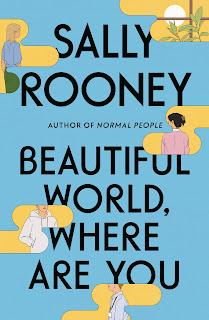Actor Retrospective: Michelle Yeoh
At 60, Michelle Yeoh remains as the undisputed Asian female star who continues to star in films and delivers on both dramatic and action departments. Like many of her peers in the industry, she eventually got married. However, unlike most of the rest who retired from showbiz, she continued to take on numerous roles, which helped to cement her reputation as one of the most versatile actresses in both the East and West. In her latest film, Everything Everywhere All at Once, she’s a living example that age doesn’t hold her back.
But for her, getting here was no easy feat. Many female actors stop receiving as many roles unless they age well, and even then, only their fame keeps them in the spotlight. Early on in her career, she starred alongside other stars like Cynthia Rothrock in Corey Yuen’s Yes, Madam! (1985) and Maggie Cheung in Johnnie To’s The Heroic Trio (1993). Maggie had a string of notable roles, but mostly retired after marriage, and has kept a low profile since. Cynthia holds a black belt in several martial arts, but despite achieving mainstream fame in Hong Kong, couldn’t replicate the same success back in the US. For Michelle, she continued to take on action roles, but her characters were not simply one-dimensional heroines. They embodied their own personalities on top of a fighting spirit, and shaped her into a formidable actress.
Born in 1962, Michelle spent her childhood in Ipoh, Perak, where she learned ballet. At 15 her family moved to the United Kingdom, and she continued her training in London. However, due to an injury she couldn’t become a professional ballet. At 20, she won the Miss Malaysia World contest, and after winning other beauty pageants, she scored a role in a commercial with none other than Jackie Chan. From there on, she landed her first film role in Sammo Hung’s The Owl vs Bombo (1974). Her first breakout role however, was on Yes, Madam! (1985), where she played an inspector who goes up against a triad boss. Her boldness to take on such roles in a male dominated environment earned her the recognition in both Hong Kong and abroad.
Needless to say, both her action and stunt work in her first few films were amazing, given her lack of experience in that area. Growing up, she learned little Cantonese, so she had to pick it up as her career in Hong Kong took off. As one of the few female action stars in Hong Kong, fame found her quickly enough. Her next major role was in 1992, where she once again found herself alongside Jackie Chan in Stanley Tong’s Police Story 3: Super Cop. Obviously, she wasn’t there to be his love interest, that role fell to Maggie Cheung. Instead, as his police compatriot hailing from China, she found herself tag team with Jackie. Needless to say, it was physically demanding, but nothing that she couldn’t handle. In Super Cop, she performed one of her most famous stunts, jumping on top of a moving train while riding a motorcycle.
Following her success in the Hong Kong film industry, she appeared in several
other films in the 1990s. Most of the films portrayed her as the heroine
archetype she was known for, but in each she brought her own craft to it. In
the late 90s, action cinema in Hong Kong began losing ground, and those who
could made their move to Hollywood. Michelle was not much different, as she
found her way into the arms of Bond in Tomorrow Never Dies (1997).
Instead of being the typical ‘damsel in distress’ Bond girl, she held her own
with Pierce Brosnan, and I daresay outshined him. As she staked her claim as
one of the top actresses not only in Asia, but also Hollywood, a Taiwanese
American director known as Ang Lee cast her in Crouching Tiger, Hidden
Dragon (2000). In this wuxia film, her role had transitioned from the aggressive
fighter, to a wiser and restrained senior figure.
The film was a massive success, and earned Michelle a myriad of nominations. Unfortunately, she didn’t bag any awards, but now Hollywood was beginning to take a greater interest in her. In American productions, she was given more dramatic roles and was less inclined to fight. In some way, her career thus far had honed her acting abilities, but I believe she always had it to begin with. There’s unfortunately not much to say during this period, as she became just another character onscreen, among other cast members. Western audiences who didn’t know any better saw her simply as one of the token minorities, and in some cases she was.
There’s a bit of a gap in this period of her film career, and to some it might seem that she too had fallen off the map. She had a brief return to the wuxia genre in Reign of Assassins (2010), but it wasn’t too well received and became a flop. In 2016, she once again attempted a return to her martial art roots in Yuen Woo-ping’s Crouching Tiger, Hidden Dragon: Sword of Destiny (2016). With the legendary Yuen Woo-ping holding the reins, and Donnie Yen as her co-star, one would naturally expect to be greeted with a sense of nostalgia. The travesty is that the film was a forced sequel, and buckled under that pressure. With less care toward quality, many excessive effects were thrown in the mix. Although the worst sin is that the film is entirely in English, and looking at the rest of the cast it’s easy to see why.
At this point, it might seem that Michelle Yeoh’s career was taking a dive. After all, with her prime years behind her, being misused by big studios and shuffling between American and Chinese productions. The bygone era saw some of her biggest hits, but alas that too has come to pass. One would be inclined to think she would rest on her laurels and exit from showbiz. Certainly, she has had a most fulfilling career and can rest easy. But for Michelle, she still has much to offer the world.
In 2018, Jon M. Chu, best known for the Step-Up movies was chosen to direct an adaptation of the rom-com novel, Crazy Rich Asians. The film was noted by locals as one of the rare Hollywood productions to be filmed in Singapore, only to realize most of the locations were far too extravagant for the common man to relate to. Nevertheless, the cast consisting of local actors drew a certain appeal, and of course there was Michelle Yeoh as the groom’s haughty, demanding mother. Even though most of the attention was centred on the couple, Michelle stole the scenes she was in.
Up to this point, she had starred in many major productions in both the east and west. Her near global recognition as an A-list actress meant that she could afford to take a variety of roles that she took an interest in. However, like any other working actress the pay check is also a deciding factor, which led her to play Shang Chi’s aunt in Shang-Chi and the Legend of the Ten Rings (2021). It’s certainly a minor role for her considering the other films she’s been in, but starring in a Marvel movie is oddly seen as a crowning achievement these days.
And now, we arrive back at Everything Everywhere All at Once (2022). It’s a film I’ve written about separately, and it deserves all the praise it’s getting. Michelle Yeoh is everything in it, and everywhere, all at once. It’s a role that feels like a culmination of everything she’s done before, a compilation of greatest hits. I’m sure the intention wasn’t to make it about her, but in a weirdly appropriate fashion it feels like we’re watching Michelle re-explore her own acting horizons.
I think it’s fair to say that she’s had an illustrious career, more than what many can say for themselves. She managed to carve a spot for herself in the world, even as the industry underwent changes and forced her to adapt. Age remains the eternal nemesis of all who tread this path, but even then, she embraced the new roles handed to her. She stayed as long as she did, not due to a lack of choice, but because she wanted to.









Comments
Post a Comment